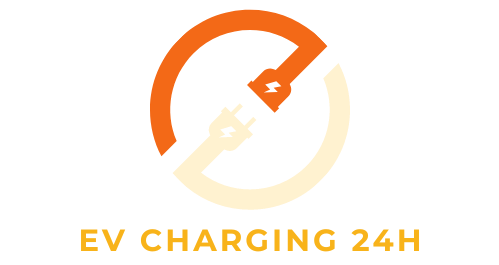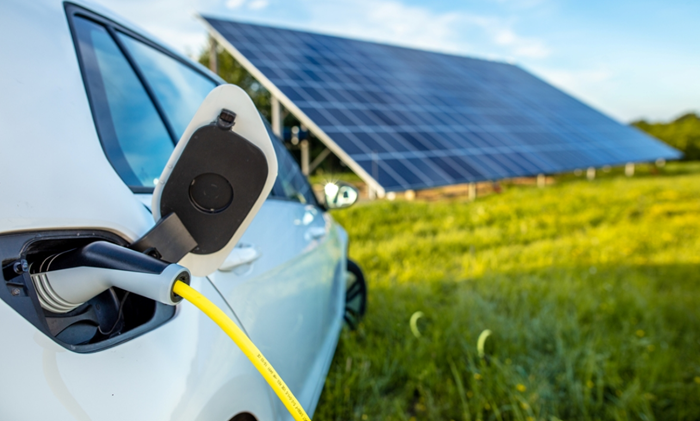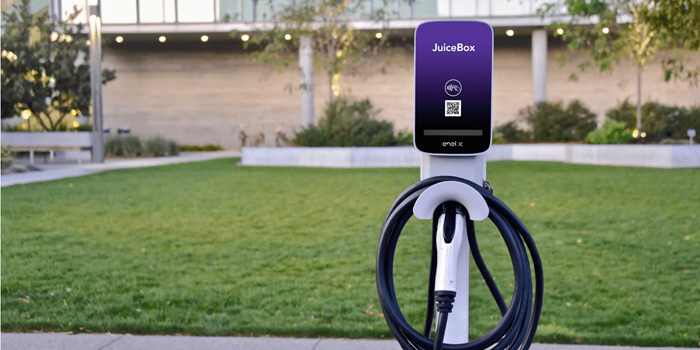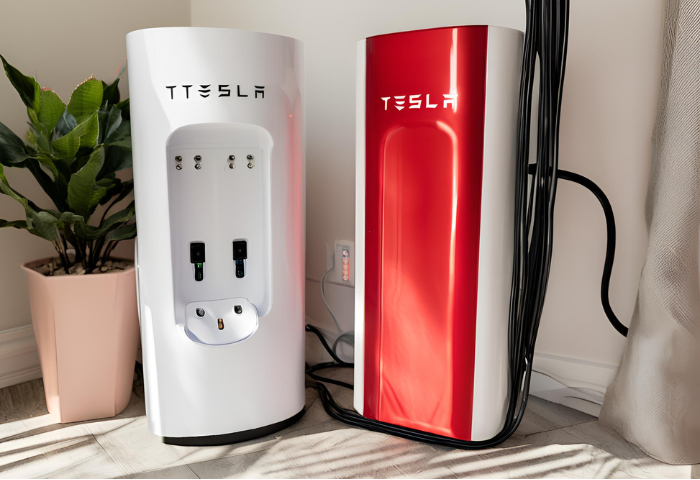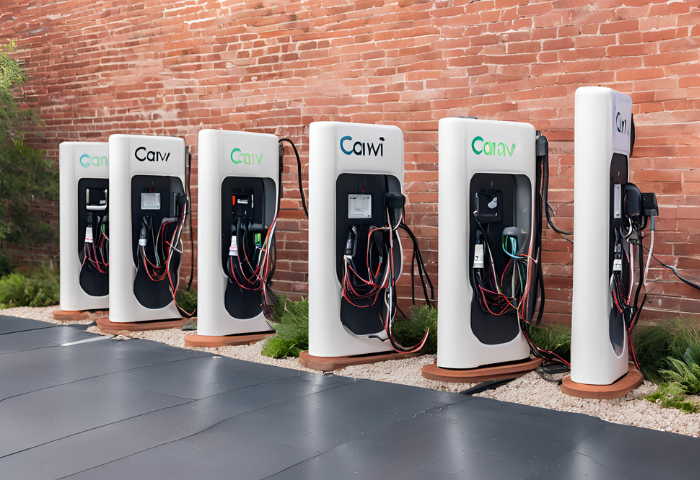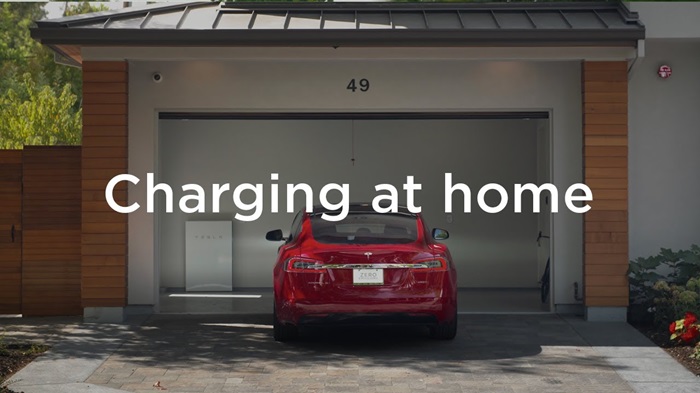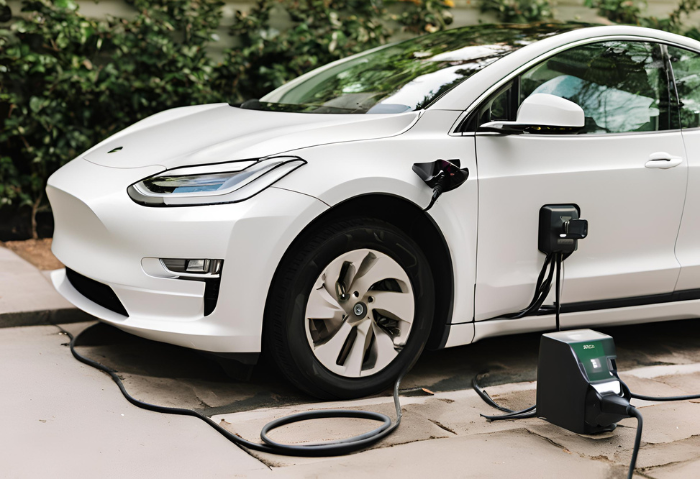EV Home Charger with Solar Panel: A Sustainable Power Solution
The increasing popularity of electric vehicles (EVs) has brought a spotlight to charging infrastructure, particularly at home. Combining an EV home charger with solar panels offers a sustainable and cost-effective solution, reducing reliance on the grid and minimizing environmental impact.
Understanding EV Home Chargers with Solar Panel
An EV home charger with a solar panel is an electric vehicle charging station that incorporates solar photovoltaic (PV) technology to harness sunlight and convert it into electricity for charging electric vehicles. An EV home charger with a solar panel isn’t a single product, but rather a powerful combination, that include:
- EV Home Charger: This is a wall-mounted unit installed in your garage or near your parking spot. It allows you to conveniently charge your electric vehicle (EV) at home using electricity from your house’s electrical grid.
- Solar Panel System: This consists of solar panels installed on your roof that convert sunlight into clean, renewable electricity.

1. How does an EV home charger with a solar panel work?
The solar panel collects sunlight and converts it into direct current (DC) electricity. An inverter then converts the DC electricity into alternating current (AC), which is compatible with the electrical grid and charging equipment.
The electricity generated from the solar panel can be used directly to charge the electric vehicle or stored in a battery system for later use. If the solar panel produces more electricity than is needed for charging the EV, the excess energy can be fed back into the grid or stored for household use.
2. Benefits of using an EV home charger with a solar panel
- Clean and Renewable Energy: By utilizing solar power, EV charging becomes more environmentally friendly, reducing reliance on fossil fuels and lowering carbon emissions.
- Cost Savings: Solar energy reduces reliance on grid electricity, potentially lowering electricity bills and providing long-term cost savings.
- Energy Independence: Generating electricity from solar panels promotes energy independence and resilience against utility price fluctuations.
- Convenience: Charging an electric vehicle at home with solar power offers convenience and flexibility, allowing for easy and efficient charging without relying on public charging stations.
3. Brands offering EV home chargers with solar panels
While there isn’t a single brand offering a pre-packaged “EV home charger with solar panel” solution, several companies specialize in each component:
- EV Home Charger Brands: Many companies like Tesla, ClipperCreek, and ChargePoint offer high-quality Level 2 EV home chargers.
- Solar Panel System Providers: Several companies, like Sunrun, SunPower, and LG Solar, specialize in designing and installing solar panel systems for homes.
Consider integrating an EV home charger and solar panel
The dream of a solar-powered EV charging station at home involves two separate systems working in harmony. Let’s explore the frame semantics for the installation, integration, compatibility, and maintenance of an EV home charger with a solar panel:
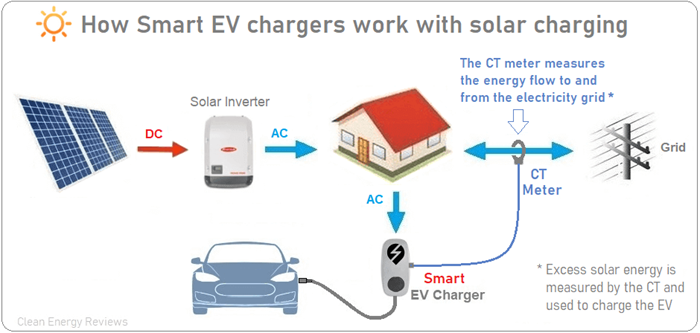
- Installation Process (Separate Systems, Collaborative Effort):
Solar Panel System:
- A qualified solar installer will assess your roof’s suitability, sun exposure, and electricity needs.
- Permits might be required, depending on your location.
- The solar panels will be installed on your roof by the installer, and they will be connected to an inverter that will change the DC electricity they produce into AC electricity that your house and EV charger can use.
EV Home Charger:
- A qualified electrician will install the EV home charger near your parking spot.
- They’ll connect the charger to your home’s electrical panel, ensuring it has sufficient capacity to handle the additional load.
- The electrician will likely coordinate with the solar installer to ensure compatibility and optimal use of solar-generated electricity for charging.
Integration of EV Chargers and Solar Panel Systems:
- Coordination: Ensure seamless coordination between the solar panel system and EV charger to maximize energy efficiency and charging capabilities.
- Monitoring: Implement monitoring systems to track energy production from solar panels and consumption from EV charging, allowing users to optimize charging schedules and energy usage.
- Smart Charging: Utilize smart charging technologies to prioritize solar-generated electricity for EV charging when available and adjust charging rates based on solar production and household energy needs.
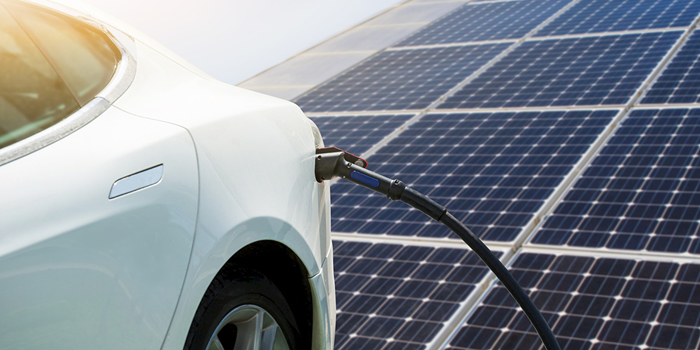
Compatibility with Different Types of Electric Vehicles:
- Universal Compatibility: EV home chargers with solar panels are typically compatible with all types of electric vehicles, including battery electric vehicles (BEVs) and plug-in hybrid electric vehicles (PHEVs).
- Charging Standards: Ensure compatibility with charging standards such as J1772 for AC charging and CCS or CHAdeMO for DC fast charging, depending on the EV’s charging capabilities.
Maintenance and Upkeep of an EV Home Charger with a Solar Panel:
- Regular Inspections: Periodically inspect solar panels, inverters, and EV chargers for signs of damage, debris buildup, or malfunctions.
- Cleaning: Keep solar panels clean and free from dirt, dust, and debris to maximize sunlight absorption and energy production.
- Firmware Updates: Stay updated with firmware updates for EV chargers and monitoring systems to ensure optimal performance and compatibility with new features.
- Professional Servicing: Schedule regular maintenance and servicing by qualified technicians to address any issues and ensure the longevity of the system.
Decoding the Lingo of Solar-Powered EV Charging
1. Types of EV Home Chargers for Solar Power:
Standard Level 2 Chargers: These 240v chargers offer significantly faster charging times compared to a standard outlet (Level 1). Look for models compatible with your chosen solar panel system for seamless integration.
Smart Chargers with Solar Integration Features: These advanced Level 2 chargers boast features like:
- Wi-Fi Connectivity: Allows remote monitoring and control of charging schedules.
- Solar-aware Charging: Prioritizes using solar-generated electricity for charging whenever possible, maximizing efficiency and cost savings.
- Integration with Solar Monitoring Systems: Provides a holistic view of energy production and consumption.
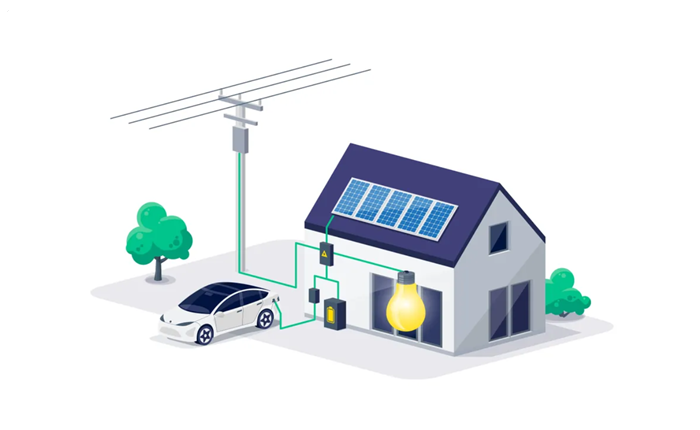
2. Features and Specifications of EV Home Chargers with Solar Panels:
Solar Integration: Integration with solar panels for clean and renewable energy charging.
Charging Speed: Charging capacity and speed, measured in kilowatts (kW), determine how quickly the vehicle’s battery can be charged.
Compatibility: Compatibility with different electric vehicle models and charging standards (e.g., J1772, CCS, CHAdeMO).
Connectivity: Connectivity options such as Wi-Fi or cellular connectivity for remote monitoring and control.
Energy Management: Energy management features to optimize charging based on solar energy production, time-of-use rates, and user preferences.
Safety Features: Built-in safety features such as overcurrent protection, ground fault protection, and surge protection ensure safe charging operations.
3. Cost and Pricing Factors:
- EV Home Charger: The cost varies depending on features, amperage, and brand. Smart chargers with solar integration features typically cost more than standard Level 2 chargers.
- Solar Panel System: The cost depends on system size, brand, and installation complexity. Government incentives and rebates can help offset the initial investment.
4. Energy Efficiency and Environmental Impact:
- Clean Energy: Utilization of solar energy for EV charging reduces reliance on fossil fuels and lowers carbon emissions, contributing to environmental sustainability.
- Energy Efficiency: Efficient charging algorithms and smart energy management features optimize energy usage and minimize waste, further reducing environmental impact.
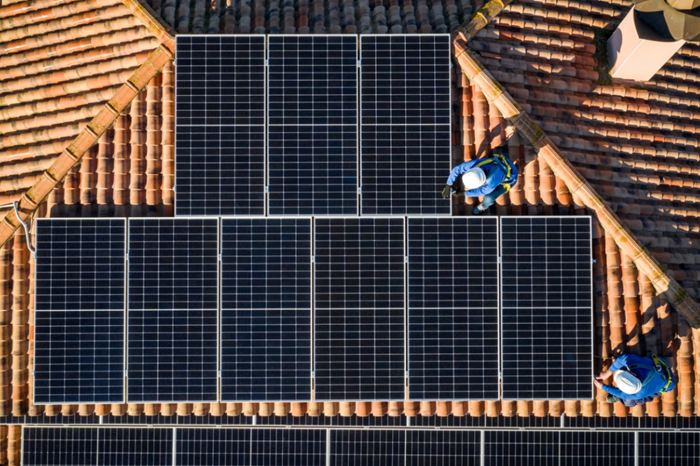
5. Regulatory and Safety Standards:
- Compliance: Adherence to regulatory standards and safety certifications such as UL (Underwriters Laboratories) for electrical safety and NEC (National Electrical Code) for installation requirements.
- Grid Interconnection: Compliance with utility regulations and interconnection standards for feeding solar-generated electricity back into the grid or participating in demand response programs.
Understanding these features and considerations can help consumers make informed decisions when selecting and deploying EV home chargers with solar panels, balancing cost-effectiveness, environmental sustainability, and regulatory compliance.
Studies and expert opinions on EV Home Charger with Solar Panel
Here’s a breakdown of topical authority on EV home chargers with solar panels:
Studies and Research:
- Government Agencies: The US Department of Energy (DoE) and national laboratories like NREL (National Renewable Energy Laboratory) publish studies and reports on the efficacy of solar-powered EV charging.
- Academic Journals: Search for research papers in academic databases that explore the economic and environmental benefits of integrating EV home chargers with solar panels. Look for reputable journals published by organizations like the Institute of Electrical and Electronics Engineers (IEEE).
- Industry Associations: Organizations like the Solar Energy Industries Association (SEIA) and the Electric Vehicle Charging Association (EVCA) might publish research or white papers on the topic.
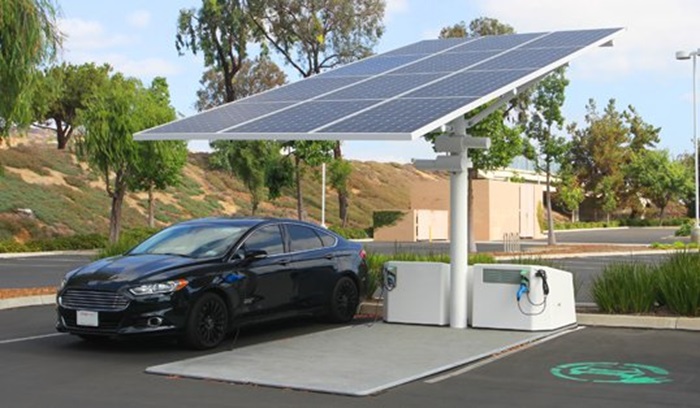
Customer Reviews and Testimonials:
- Online Marketplaces: Customer reviews on platforms selling EV home chargers and solar panel systems can offer valuable insights from real-world users. Look for reviews that discuss factors like ease of installation, system performance, and integration with solar power.
- EV Forums: Online communities dedicated to electric vehicles are a great place to find user experiences and recommendations for EV home charger and solar panel combinations.
Expert Opinions:
- Clean Energy Websites: Websites focused on clean energy and sustainability often publish articles featuring expert opinions on the future of EV charging infrastructure, including the role of solar power.
- Industry Publications: EV news websites and publications might feature interviews with experts discussing the future of EV charging and the potential of solar integration.
Government Incentives and Policies:
Database of State Incentives for Renewables & Efficiency (DSIRE): This US Department of Energy resource provides a comprehensive database of state-by-state incentives for renewable energy technologies, including solar power and EV charging infrastructure. You can find information on tax credits, rebates, and other financial incentives that can significantly reduce the upfront cost of installing an EV home charger with solar panels.
Federal Incentives: Research the federal tax credits or rebates available for installing solar panels and EV chargers in your area. Government websites and resources from the US Department of Energy or the Environmental Protection Agency (EPA) can be helpful starting points.
By leveraging these resources, you can gain valuable insights from research, real-world user experiences, expert opinions, and available financial incentives to make an informed decision about integrating an EV home charger with solar panels for a sustainable and cost-effective EV charging solution.

Henry Michael is a leading expert in EV charging station research, specializing in innovative solutions for electric vehicle infrastructure. With a passion for sustainability and technological advancement, he is dedicated to advancing the accessibility and efficiency of EV charging worldwide.
